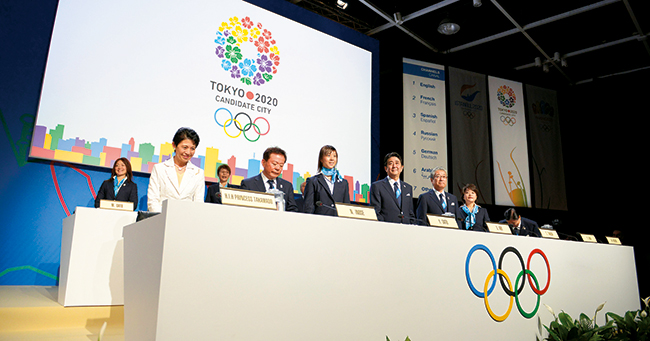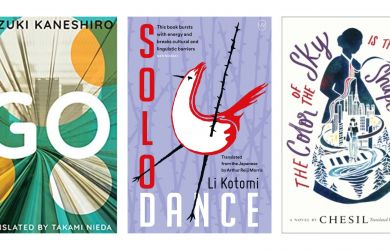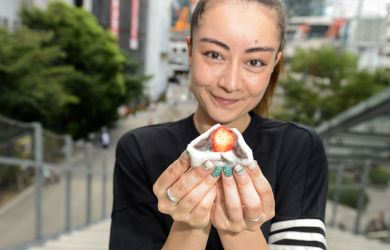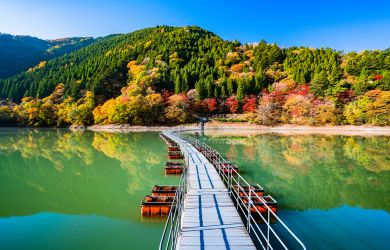
Originally published on metropolis.co.jp on December 2013

One story dominated Japan’s sporting news, and in many ways the 2020 Olympics will determine what’s big in sports here for the next six years. Other stories not associated with the games may have flown under the radar. So here’s a Metropolis rundown of the top stories of 2013.
Tokyo awarded 2020 Olympics
Back in February, a sports marketing friend told me that the 2020 Olympics were Tokyo’s to lose. Tokyo was the big gun, but Madrid had economy of scale on its side and Istanbul was a brave new frontier for the International Olympic Committee to explore. All three bids suffered as the September vote approached. Tokyo Governor Naoki Inose made disparaging remarks about Tokyo’s rivals, riots hit Istanbul and economic reality dampened Madrid’s bid. When Prime Minister Shinzo Abe told the IOC that the radiation problems in Fukushima wouldn’t be a problem in Tokyo, the game was over and Tokyo could celebrate. Some accused Abe of lying over Fukushima, while a gang of (jealous?) architects demanded the downsizing of Zaha Hadid’s magnificent stadium plans. It’s open season for the next six years.
Eagles, Tanaka dominate Japanese baseball
While the Olympics was the big story of the year, it was still given a run for its money by a non-Olympic sport: baseball. In recent years, soccer has overshadowed the salaryman’s favorite pastime in Japan, but the Tohoku Rakuten Golden Eagles breathed fresh life into the stale, old sport with a remarkable season and a remarkable pitcher. Masahiro Tanaka brewed up a perfect pitching storm in Sendai with an exquisite 24-0 record. Along the way, he broke Japan records by winning 26 straight games (including games from last season) and going unbeaten in 30 starts. Tanaka helped Seichiro Hoshino’s Eagles finish in first place, and they crowned a memorable season by defeating the Yomiuri Giants in the Japan Series. It was Rakuten’s and Hoshino’s first Series title.
Samurai Blue qualify

Soccer continued to be healthy in 2013. The J. League’s top division came down to the wire before Sanfrecce Hiroshima took the title, while Shinji Kagawa’s every move at Old Trafford was chronicled in the Japanese sports media. It turned out to be an up-and-down year for Alberto Zaccheroni and the national team and the 2-1 loss to Jordan in March had some calling for the Italian’s head. But a 1-1 draw against Australia enabled Japan to qualify for the 2014 World Cup and took the pressure off Zaccheroni. Japan then lost three straight at the Confederations Cup before winning the East Asian Championship for the first time. Losses to Uruguay, Serbia and Belarus saw Zaccheroni under fire again, but an excellent draw against the Netherlands and a win over Belgium in November ended the year on a high note. Next stop: Brazil and the World Cup.
Wrestling back on track
Japan and the wrestling world suffered a major shock in February when the IOC decided wrestling would no longer be a sport at the Summer Games. The sport fought back, and the day after Tokyo was awarded the 2020 Olympics, wrestling returned to the Olympic fold, much to the relief of Japan and its terrific women wrestlers. Two weeks later, wrestling superstar Saori Yoshida won her 14th straight World Championship, while Kaori Icho—who, like Yoshida, has won three straight Olympic golds—took her eighth and 20-year-old Eri Tosoka her first.

Japan’s women take Volleyball bronze
The Japan women’s volleyball team had a chance to win their first major title in 35 years when they faced Olympic champions Brazil on the final day of the FIVB World Grand Champions Cup. Sadly, they were blown away by the dominant Brazilians and had to settle for another bronze to go with their 2012 Olympic bronze.
Gymnast Uchimura continues to dominate
People are now saying that Kohei Uchimura is the greatest gymnast of all time, having won his fourth straight all-around title in 2013, and in so doing becoming the first gymnast to win every major all-around title in a single Olympic cycle. He also won the all-around title at the 2012 Olympics.
Ando trumps Asada
Poor Mao Asada. She’s been trying to shake off rivals Kim Yuna of South Korea and Japan’s Miki Ando for years with her robotic, unimaginative skating—but it’s Kim who usually wins the big titles and Ando who makes the juicier headlines. Although she only managed a bronze medal at the World Championships that Kim won, Asada took the Four Continents Championship in Osaka and capped off a solid year with victory in the Grand Prix Final as she gears up for the Winter Olympics in Sochi. She was helped by the absence of the injured Kim in the latter half of the year and her Japanese rival Ando, who has dominated the media in Japan after it was revealed that she became a mother in April.
Rookie Matsuyama takes money title
Golfer Hideki Matsuyama, 21, turned professional in April, won four titles on the Japan Tour, topped the prize-money list, entered the world’s Top 50 and finished in the Top 10 in two of the year’s four majors. Perhaps his greatest feat has been to make everyone forget about Ryo Ishikawa.
Nishikori on the up
Japan’s top tennis player, Kei Nishikori, captured his third ATP title in the U.S. National Indoor and beat Roger Federer at the Madrid Open, which propelled him to his highest ever ATP ranking of 11.
Eddie Jones has a stroke
Japan rugby coach Eddie Jones led his team to a historic victory over Wales in a test match in Tokyo in June but four months later landed in hospital after suffering a stroke. The good news is that Jones—who is half Japanese—is out of hospital, recovering and back on the job.





